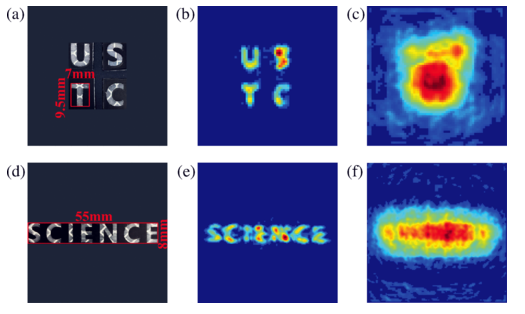Usually, the traditional optical imaging strategies can only image the target objects within the field of camera. However, through the non-line-of-sight (NLOS) which can record the time-of-flight information about single-photon, the target imaging outside of the camera view can also be captured successfully with the assistance of related computational imaging algorithms.A research team led by Prof. PAN Jianwei from University of Science and Technology of China (USTC), in cooperation with researchers from the Jinan Institute of Quantum Technology, realized the millimeter-level three-dimension (3D) non-line-of-sight imaging by constructing up-conversion single-photon detector, paving the road for the multiple applications of this novel method.Relevant results have been published in the journal Physical Review Letters.Since the time of flight information of photons contains the relative spatial position information between objects, its accuracy of time will directly affect the accuracy of 3D reconstruction of objects. However, the accuracy of traditional NLOS imaging strategy, confined by the time resolution capability of single-photon detectors, is limited on centimeter level.In this study, the researchers constructed an up-conversion single-photon detector operating around the near-infrared wavelength to realize high-resolution NLOS imaging.The excellent resolution of ~1.4 picoseconds and low noise counts rate of 5 cycles per second were achieved through long-wavelength-pumping and time-gating strategies.Additionally, the team accomplished the high-precision 3D reconstruction of the target object outside the view, with a horizontal spatial resolution of two mm and a vertical spatial resolution of 0.18 mm.
These results open the way for high resolution NLOS imaging techniques for related applications.

Comparison of different system working on reconstruction of letters (Image by WANG Bin et al.)
(Written by ZHANG Liying, edited by LI Xiaoxi, USTC News Center)
